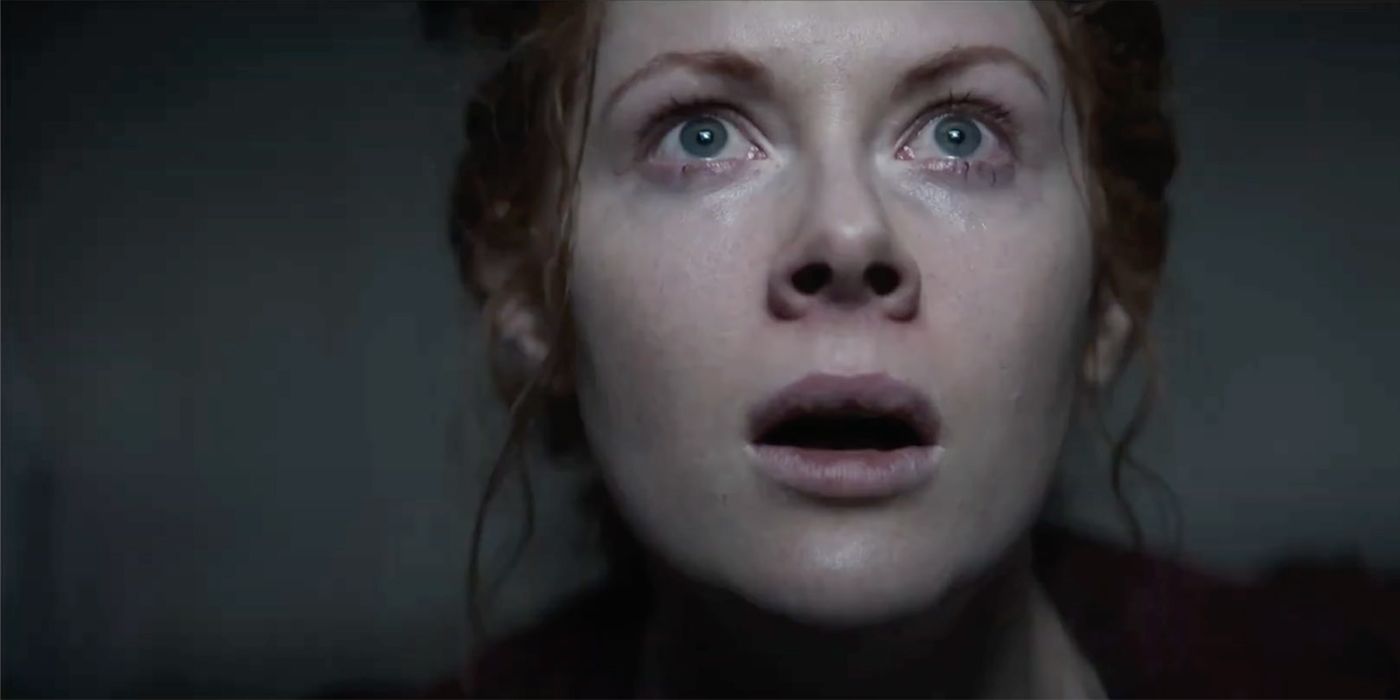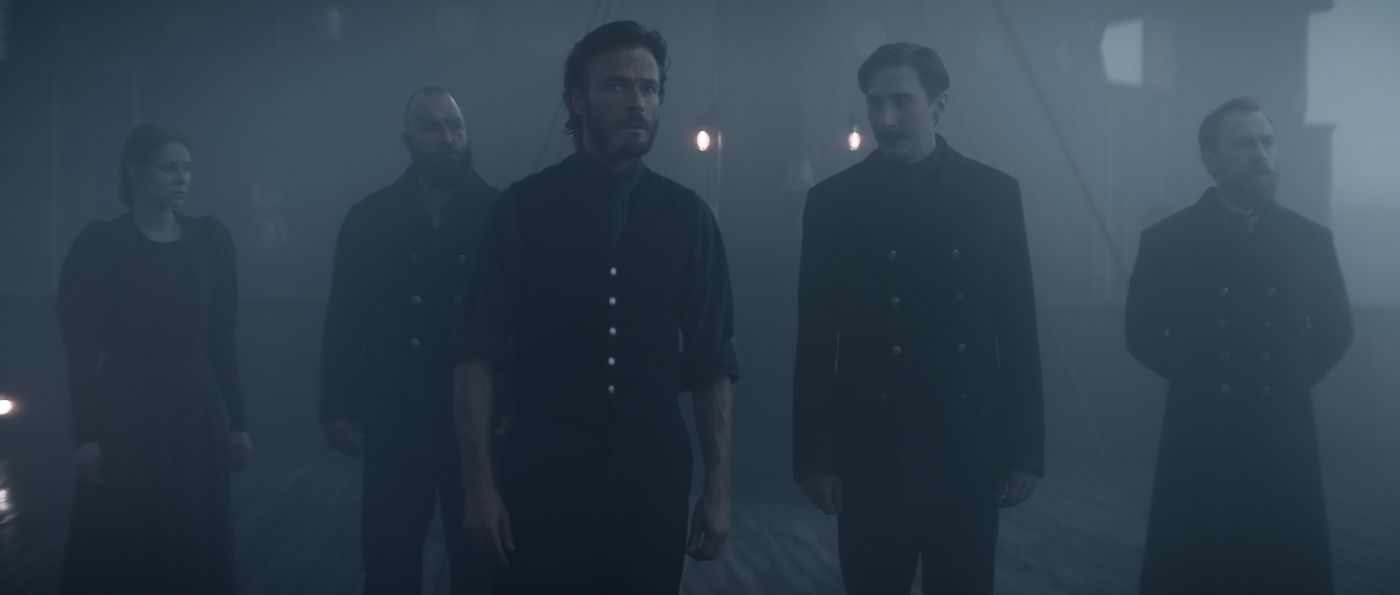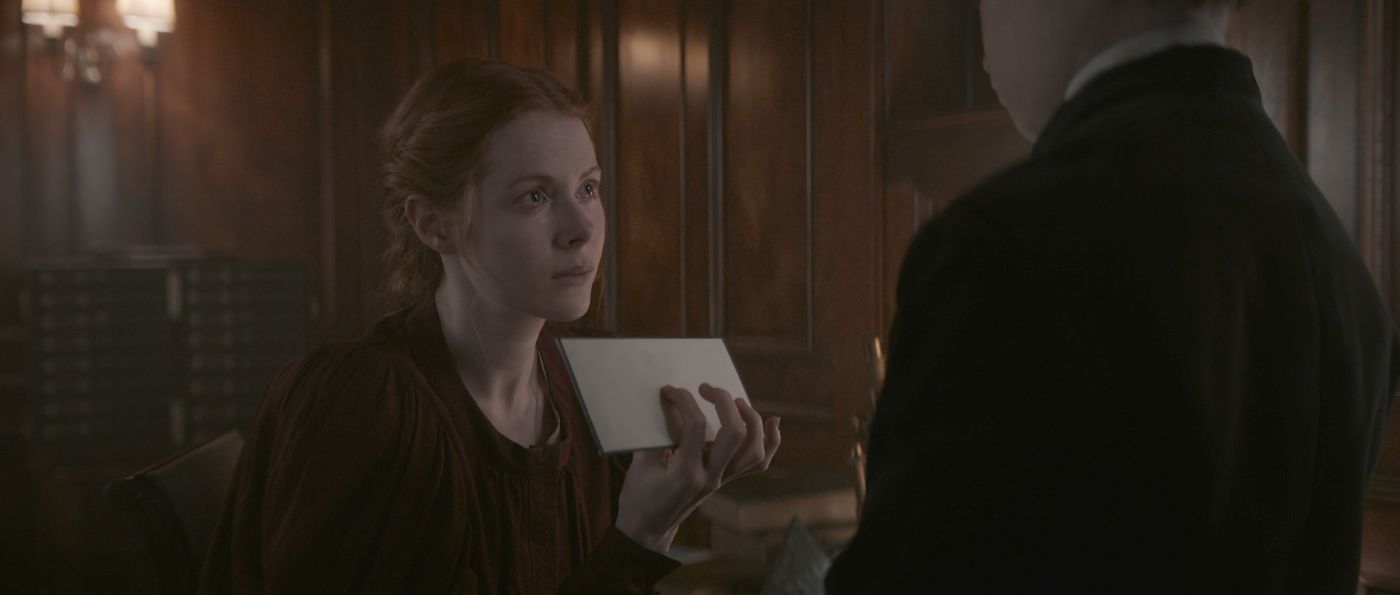It took some time for Dark to become an international success, but once word-of-mouth did it, the German series by Jantje Friese and Baran bo Odar became one of Netflix's biggest hits. Two years after Dark’s finale, Friese and bo Odar are back on the streamer with a bigger budget, a more ambitious project, and the heavy weight of expectation on their shoulders. Fortunately, 1899 does exactly what it promises by delivering a mind-bending puzzle that will keep the audience guessing until the last moment, as the story twists and turns in unexpected ways. And while there’s enough fun to be had from piecing all the clues the showrunners leave behind in each episode, 1899 also proves Friese and bo Odar have a keen talent for exploring the human tragedy, even if sometimes they put their mystery above character growth.
1899 follows the passengers and crew members of the Kerberos, a steamer ship that left Europe to cross the ocean and get to New York. Aboard the ships are the dreams of thousands of people who expect to find a better life in America at a time when the United States was still a beacon of hope to the rest of the world. Just as Dark leaned heavily on the cultural differences of different decades in Germany, 1899's historical background allows Friese and bo Odar to explore the multicultural nature of Europe by featuring an international cast of characters from every corner of the old continent. And in a brilliant creative decision, the showrunners looked for stars from around the globe to ensure 1899 would be faithful to the many languages spoken by the passenger of the Kerberos.
While English is the common language in 1899, used by the main characters or as a way to convey official information between the ship’s crew and the passengers, there’s a rare effort to let people of different nationalities speak their mother tongue. Language is also the greater barrier to communication, as people are forced to work together even though they don’t understand each other. By exploring the accuracy of language barriers, 1899 ends up underlining how, despite their differences, humans can band together when danger threatens them all, finding ways to communicate that don’t depend on words. It also shows that even if language shapes our worldviews, the human experience is similar everywhere around the globe, as trauma defines the people we become.
From the start, 1899 has a big advantage compared to Dark, as it makes us deeply care for its cast of characters. There’s something weird with the Kerberos, and the mystery of what happens there is what pushes the plot forward. Nevertheless, each character is a puzzle on its own, as we learn little by little what drove so many people to jump onboard the same ship. By giving viewers glimpses of the Kerberos’ characters’ pasts, 1899 fleshes out their motivations. Each episode of the series focuses on a different character constellation, showing how these people are related and why they are on the ship. The strategy is highly efficient in keeping viewers engaged, as there’s always the promise to better understand one of your favorite characters in a future episode. Unfortunately, as the series approaches the season finale, 1899 abandons character growth in favor of mind-bending revelations that undercut the emotional stakes of the show.
When Dark was released on Netflix, viewers didn’t know what to expect, leading to the show’s shocking revelations being highly effective. However, people watching 1899 are ready to be deceived by the showrunners, which means viewers will look for clues in every frame of the series. Knowing full well that the mind-bending mystery is the biggest selling point of Dark and 1899, Friese and bo Odar don’t take as long to shatter our perception and make us question reality. That strategy allows them to present a story that’s at the same time more complex and easier to follow, as both creators and audience share the same wavelength when it comes to 1988. The side effect is that the mystery steals the attention that should belong to the characters.
Friese and bo Odar have impressive control over 1899’s narrative, using clever imagery to hide information for the viewers to find in the most unsuspicious places, from earrings to wallpapers in the background. But for a show to be successful in the long run, there must be characters to care about with meaningful stories. And while 1899 succeeds in building a puzzle that’s at the same time brilliant and accessible, it fails to have us cheering for the future of its best characters. When the credits roll in the season finale, so much has been subverted that both their victories and failures have no further purpose.
There's still time to steer the ship in the right direction, though. Since Season 1 already turns reality upside down and reveals the elusive truths at the series’ core, the hope is that future seasons will dedicate more time and attention to developing its great cast. That would help elevate 1899 from a highly entertaining but ultimately empty show to a masterpiece of television.
Rating: B
1899 is streaming right now on Netflix.



